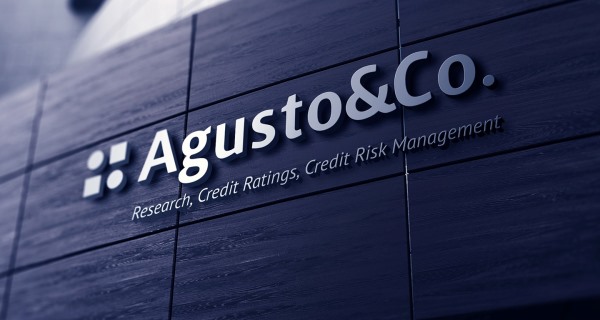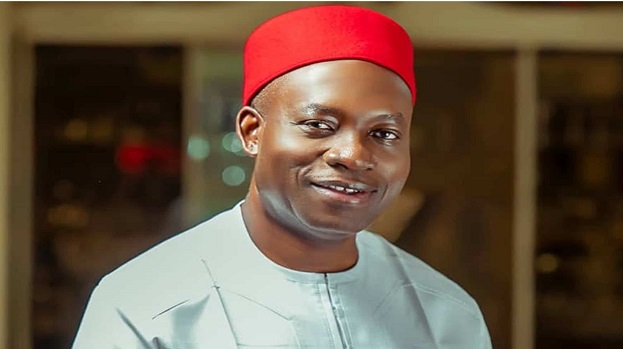News
Agusto & Co Assigns ‘AAA’ Rating, Stable Outlook on DBN

Agusto & Co., a credit rating agency assigns an “AAA” rating on the Development Bank of Nigeria Plc, DBN, the highest rating possible on any institution.

In summarizing the rating, which aligns with the “risk-free” rating of the Nigerian Sovereign, Agusto described DBN as “a development finance institution of impeccable financial condition and overwhelming capacity to meet obligations as and when they fall due”.
In pursuit of its mandate of enhancing access to credit for micro, small and medium scale enterprises (MSMEs), DBN continues to expand the scope of its operations, onboarding more Participating Financial Institutions (PFIs) and deepening credit penetration in the low end of the market, particularly amongst women entrepreneurs, who represent over 50% of the bank’s ultimate credit beneficiaries.
As observed by Agusto, “Despite the COVID-19 pandemic, DBN increased its financial support to Micro, Small and Medium Scale Enterprises (MSMEs) and small-sized corporates through participating financial institutions”.
Notwithstanding the pandemic, DBN doubled its loan portfolio to N215.1billion, leveraging its robust risk management practice in deepening credit penetration to over 136,000 MSMEs.
Further reiterating the impeccable fundamentals of DBN, Agusto highlighted “DBN’s good asset quality, good capitalization, good liquidity, and experienced management team are also positive rating factors”.
Since its inception, DBN has sustained an outstanding asset quality record of nil delinquency, unique fundamentals which attest to the efficacy of its credit creation model and overall risk management culture.
Notably, the Bank maintains a BASEL II capital ratio of 75.2%, several multiples of the minimum 10% regulatory requirement. During the review period, the liquidity ratio hovered around 84%, compared to the 10% regulatory requirement, which by implication is an indication of DBN’s capacity to sustain the pursuit of deepening credit penetration amongst MSMEs.
The strong financial metrics complemented by impeccable governance standards reinforce Agusto’s decision to assign “Aaa” on DBN, with a stable outlook.
In its credit rating announcement, Agusto noted DBN’s rating “Takes into cognizance the support of the Bank’s shareholders – the Ministry of Finance Incorporated, Nigeria Sovereign Investment Authority (NSIA), Africa Development Bank (AfDB) and the European Investment Bank (EIB). AfDB and EIB are both rated ‘Aaa’ by Standard and Poor, Moody’s, and Fitch Ratings.
“Aside from equity contribution, AfDB provides long-term borrowing, technical and business support to DBN. The rating also considers the support of other international development finance institutions such as the French Development Agency (AFD), KfW – the German Development Bank, and the World Bank, which provides funding and technical support, in addition to strengthening governance.”
Commenting on the rating action, the Managing Director/CEO, Development Bank of Nigeria, Mr. Tony Okpanachi said, “we are excited by this independent assessment of our operations, as it provides an objective opinion on the bank’s credibility and capacity in meeting short and long-term obligations.
“The rigorous and detailed process underlying Agusto’s rating is quite commendable, and I am pleased that the bank was assigned “Aaa”, the highest rating possible. Interestingly, this rating action aligns with a recent decision of Global Credit Ratings (GCR), another foremost rating agency that also assigned “AAA” national scale rating on DBN.
“As we continue to uphold gold standards in risk management and governance practices, we would sustain these well-deserved ratings, which are pertinent to our medium to long-term objectives, as we execute our unique strategies for unlocking credit for MSMEs.”
Speaking on the rating, the Executive Director, Finance & Corporate Services, Mrs. Ijeoma Ozulumba also, noted that, “Agusto’s assignment of “Aaa” on the Bank is another testament to the strong credibility and capacity of the Bank, as a distinguished development finance institution with an impeccable and overwhelming capacity to meet obligations and deliver on its core mandate.
“We would continue to leverage the bank’s balance sheet capacity, global best governance practice, robust risk management framework, and collaborative approach in easing access to credit for growing Nigerian MSMEs, which portend the salient capacity to create jobs, industrialize the economy and drive sustainable growth.”
News
Anambra Cuts Monday Pay to Kill Sit-at-Home

Anambra State will implement pro-rata salary payments for civil servants starting February 2026, targeting chronic Monday absenteeism from the long-running sit-at-home order, Information Commissioner Dr. Law Mefor announced Saturday.

Soludo
Speaking at an Awka briefing after the Executive Council’s end-of-tenure retreat, Mefor said improved security and transport have eliminated excuses for the four-year disruption, which cost the state trillions in lost revenue. “Workers enjoyed full pay despite staying away; now, no work means no pay for that day, calculated over 24 working days,” he stated.
Compliance measures include mandatory Monday clock-in forms, with markets urged to reopen fully amid bolstered security. This builds on a January 22 executive order docking 20% pay from teachers absent on Mondays.
Mefor warned that lost Mondays cripple revenue collection and productivity, rejecting alternatives like Saturday shifts as capitulation to agitators.
News
Stakeholders Demand Stronger Governance and Infrastructure to Drive Tech Adoption @ Lagos AI Summit

As AI adoption accelerates across Nigeria, leaders at the “AI in Action Now” conference 2026 have called for a balance between rapid innovation and strict regulatory governance. The event, held at the Lagos Oriental Hotel, highlighted both the doggedness of Nigerian builders and the risks of unregulated data usage.

Dotun Adeoye, Co-Founder of AI Nigeria, raised alarms over “Shadow AI”, a trend where employees upload sensitive official documents to public AI platforms. He praised the Nigerian Data Protection Commission (NDPC) for its recent aggressive stance, including multi-million-dollar fines against major banks and social media brands.
“Innovation without governance is dangerous. The regulator now has the job of educating players. We are working in partnership with them to ensure players don’t just get fined, but actually understand how to protect data locally rather than storing it abroad, ” Adeoye noted.
Addressing issues of lack of infrastructure to carry AI adoption, Conference Convener Debola Ibiyode admitted that while Nigeria lacks the traditional foundation for AI adoption, the tech community cannot afford to wait.

“The simple answer is we don’t have the infrastructure, but Nigeria has never really had infrastructure to drive anything, and we still thrive, ” Iboyode said, encouraging students and builders to look beyond current limitations. “Once we start to build based on what we have now, it will encourage those who need to provide the infrastructure to do their part. The world will not wait for us,” she insisted.
To bridge this gap, she highlighted the AI Foundry Africa, an incubator designed to mentor ideas into market-ready products.
Meanwhile, speaking to journalists on the sidelines, Biodun Ogunleye, the Lagos State Commissioner of Energy and Mineral Resources, echoed the sentiment that the government’s role is to facilitate the right environment through partnership. He emphasized that data generated from interactions with the government must have long-term value.
“We must ensure that in all facets from production to interaction with government, the tools required to ensure data has value are appreciated,” Ogunleye stated.
He concluded that through private-sector collaboration, the government can focus on its primary functions while leveraging AI to ensure the nation aspires for the future.
News
35 Million Nigerians Face Acute Hunger in 2026, UN Warns

About 35 million Nigerians face acute hunger risks in 2026, including three million children battling severe malnutrition, the United Nations has warned, attributing the crisis to collapsing global aid budgets and escalating violence in the northeast.

UN Resident and Humanitarian Coordinator Mohamed Malick Fall disclosed this on Thursday during the launch of the 2026 humanitarian plan in Abuja, noting that the traditional foreign-led aid model proves unsustainable amid Nigeria’s escalating needs.
He highlighted dire conditions in Borno, Adamawa and Yobe states, where over 4,000 people perished in the first eight months of 2025 from surging suicide bombings and attacks—equalling the entire previous year’s toll.
The UN now targets $516 million to deliver lifesaving aid to 2.5 million people this year, a sharp drop from 3.6 million in 2025 and half of prior levels, forcing prioritisation of only the most critical interventions.
Fall stressed, “These are not statistics. These numbers represent lives, futures and Nigerians,” as shortfalls last year compelled the World Food Programme to halt support for over 300,000 children after resources dried up in December.
Yet, Fall acknowledged Nigeria’s increasing national ownership, including local funding for lean-season food assistance and proactive flood early-warning systems, signalling a shift toward self-reliant crisis response.

 E-Financial3 days ago
E-Financial3 days agoZenith Bank Gets Regulatory Approval for Full Takeover of Paramount Bank

 Telecom3 days ago
Telecom3 days agoNew Investment Fund Targets Acceleration of Emerging Technology in Nigeria

 E-Business3 days ago
E-Business3 days agoFirm Detected a Fivefold Surge in QR Code Phishing Attacks in the Second Half of 2025

 News3 days ago
News3 days agoNITDA Commits to Digital Inclusion for Persons with Disabilities

 General News2 days ago
General News2 days agoPalmPay User Shares Experience on Fintech Apps to Trust in Nigeria

 News2 days ago
News2 days agoStakeholders Demand Stronger Governance and Infrastructure to Drive Tech Adoption @ Lagos AI Summit

 General News2 days ago
General News2 days agoNigerians Target Self-Improvement, Business Startups in 2026 Google Data

 General News2 days ago
General News2 days agoHow Inside Jobs and Policy Shocks Trigger Nigeria’s Rising Loan Crisis
























